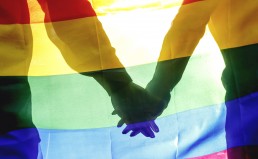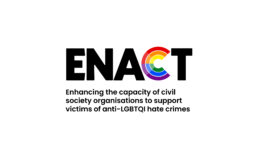Nazis considered homosexuality a disease, therefore homosexuals were subjected systemic persecution, arrest and imprisonment at concentrations camps. Many of the 5000 to 10000 imprisoned homosexuals fell victims of various dehumanizing pseudo-medical experiments and, as they were considered the “lowest caste”, experienced the harshest forms of torture.
However, many representatives of the Lithuanian state institutions in charge of the archival materials, say that there is a lack of information regarding the persecution of homosexual people in Lithuania during Nazi regime.
According to Dr. Arūnas Bubnys, historian and the Head of Department at the Genocide and Resistance Research Center in Lithuania, Lithuanian society was more conservative than that of Germany, therefore, even during the period of peace many people hid their true sexual orientation.
Džiuginta Kasiulaitienė, Office of the Chief Archivist representative, said that the tragic fate of homosexuals during the Nazi period indeed remains silent and this topic requires in-depth, specific research and extensive, time-consuming document search in Lithuania.
According to her, the broader historical context, homosexual relations and their tolerance in interwar Lithuania should be taken into account: during this period, “traditional family values” were promoted, implemented and defended. Homosexual relationships were not allowed and often became an object of the criminal persecution.
Vladmir Simonko, Executive Director of the National LGBT Rights organization LGL stresses on the sensitivity of subject and importance of the historical recognition of the homosexual people persecution during WWII : “There is such a long period of silence on this issue in independent Lithuania, especially the institutions that I believe are responsible for the construction of historical justice discourse in Lithuania. I am afraid that it might just disappear from the historical memory and it something we, as a society, simply cannot afford,” said Simonko.
According to Vladimir Simonko, certain governments, including that of Germany, Austria and United States have already addressed this issue many years ago – homosexual victims of the Nazi regime have been provided with the proper recognition and symbolic compensations. Mr. Simonko expressed his hope that Lithuania would also take the responsibility and, at very least, conduct a proper historical research on the homosexual persecution in the country.
National LGBT Rights Organization LGL have inquired Genocide and Resistance Research Center in Lithuania on the topic many times prior to no avail – so far, no official response has been received.
Read full story in Lithuanian HERE.




